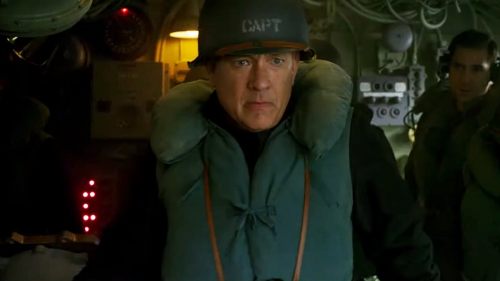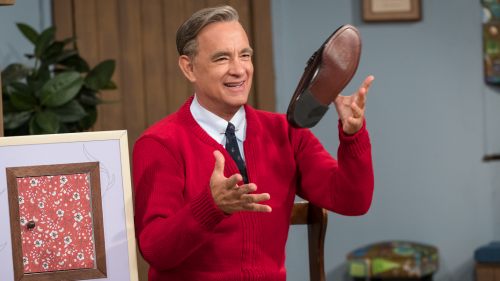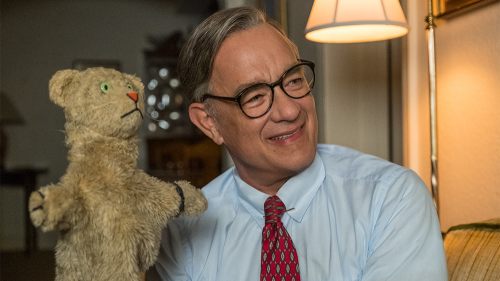A Case For Greatness: THE MONEY PIT
Classics never die, but they seldom get replaced. Cinema is populated with enduring, venerated works of art that deservedly adorn list after list, but those lists are rarely updated, and less often expanded to include new, equally worthy entries. Organizations that give out annual awards are constrained not only by the limitations of formatting, but perspective - they can’t anticipate which film will survive the buzz of its initial acclaim or success and become part of the cultural firmament. And then there are just certain films or even genres that too infrequently receive the critical attention they deserve, are too obscure to break through to bigger audiences, or just aren’t taken seriously enough to merit consideration alongside the ones we “all” already know we love or respect. A Case For Greatness, this series, tries to argue for, and to champion, forgotten or underappreciated films in a variety of genres that may be worthy of being called “classics.”
In 2019, Tom Hanks is known - he’s iconic - for being one of Hollywood’s most reliable and versatile actors. But there was a time in the 1980s when he was just another struggling actor, and a startlingly brilliant comedian. Bosom Buddies, notwithstanding its premise, offered a platform for Hanks to do some hilarious, sometimes truly unhinged work. He oozes with wholesome irreverence in Bachelor Party, a raucous movie where his goodness - and mischievous intelligence - keeps the anarchy tethered to a semblance of reality. In Splash, he makes absolutely believable the idea that a guy could fall in love at first sight with Darry Hannah, and only slightly less so the idea that she is a mermaid. And then in The Money Pit, he manages to turn an everyman character into a loveable hero, breaking an 11-year-old Todd Gilchrist into hysterics with a character just substantial enough to break 43-year-old Todd Gilchrist into hysterics all over again decades later.
The Money Pit may or may not be a great film - at least in the context of many others featured in this column - but it is a great Tom Hanks film, and it deserves to be celebrated. First released March 26, 1986, its legacy lingers as a reminder of Hanks’ heyday as a comedian, and also a tribute to an era of moviemaking where the old guard and new were clashing in unique ways to create things with both contemporary, youthful energy and classic, sophisticated polish.
The premise is simple: lawyer Walter Fielding (Hanks) and violinist Anna Crowley (Shelley Long) buy what can charitably be called a fixer-upper after being thrown out of the apartment of her ex-lover and conductor Max Beissart (Alexander Godunov). With little recourse but to make their new home work, they begin the process of hiring contractors and attempt to raze, rebuild and renovate, testing one another’s patience and the limits of physical endurance as the house presents them with one obstacle or life-threatening hazard after another.
Directed by Richard Benjamin (My Favorite Year) from a script by David Giler (Parallax View, Alien), Lowell Ganz and Babaloo Mandel (Splash, Parenthood) and featuring the cinematography of Gordon Willis (The Godfather, All The President’s Men, Manhattan), it’s easy to look at The Money Pit as a cash-grab or “slumming” for its pedigreed talent behind the camera, but their participation evidences a fascinating transformation in the 1980s when filmmakers like these were making a perhaps uncomfortable but surprisingly effective transition from the personal and political films of the 1970s and even earlier eras into studio fare. Like Laszlo Kovacs and Elmer Bernstein on Ghostbusters, these were people with real skill working magic from a virtually bygone period of time in the industry on projects that were seemingly (and perhaps fairly, becoming) more formulaic on the outside but afforded them odd challenges that audiences may not even have noticed.
For example, Benjamin and Willis shoot a surprising lot of early scenes in the film if not with looped dialogue then at least using props and sets to drive forward the information audiences needed rather than just having the characters speak exposition plainly. As the house deteriorates, the cutting from one location - and even one room - to the next is extraordinarily skillful, maximizing the comedic possibilities of, say, Walter desperately clinging from the balcony that just seconds earlier connected the second floor to the first via a staircase now in ruins below him. Or in another scene, Walter getting wedged in a rug in a hole in the floor that would be visible if only Anna would look up, as she instead runs frantically back and forth trying to find him. Meanwhile, the script writing carefully and believably escalates both Walter and Anna’s predicament and the tension it exerts on their relationship, as the two are set on a collision course.
Comedically speaking, Hanks is an absolute revelation in the film primarily because he makes Walter’s deterioration from responsible attorney to exasperated homeowner feel so convincing. The reason for this is that Walter isn’t a blank slate but a real person who’s trying to make the best of an unhappy situation - trying to find a place for him and the woman he loves to live, as she returns daily to work with her glamorous, demanding ex-husband, and then once the house is found, attempting to put a happy face on the challenges great and small that keep them from getting comfortably settled. At the same time, it’s scenes like this one that just absolutely kill me every single time I see them, as his efforts to manage the approaching disaster occasionally break his ability to shine them on with dignity:
But again, even as Walter encounters some truly oddball clients, the movie makes a pained effort to make all of them feel real and believable, and wring some genuine emotion out of this terrible house that would in less capable hands feel like a clothesline for jokes. Long’s would-be philandering with Max produces first an utterly believable explosion of comedic conflict - Walter begs her to confess, and she finally does - but the later row that erupts is equally powerful, partially because it goes on oblivious for a time to the gathering party of construction workers watching the fireworks, but the eventual, palpable hurt that Anna feels as she runs for solace to their empty bedroom. Playing a more muted version of her Cheers role, Long is a great partner for Hanks mostly because she brings an elegance and humanity - a personification to the ambition of their scruffy little romance. Meanwhile, supporting turns by Godunov (almost as great here as in Die Hard), Maureen Stapleton, Joe Mantegna, Philip Bosco, Frankie Faison, Josh Mostel, Wendell Pierce, Mike Starr and others flesh out even small roles into something memorable.
Truth be told, I hadn’t originally intended to write about this film this week, but an unexpected RT sent me on a spiral revisiting it and here we are. It’s not a complicated movie, and for many, it’s probably not especially memorable. But as good as he’s gone on to be in so many different types of films, Hanks has always been and always will be one of my favorite comedic actors, and this movie is a big part of why. And it’s why, ultimately, The Money Pit is a worthy addition to the titles in this series: the idea is to take films that are not traditionally celebrated and highlight why people should take a closer look at them. We rightfully seem to spend so much time now championing marginalized performances, performers, creatives and films, urging others to look deeper at what may be ghettoized for its genre, dismissed as minor, or otherwise forgotten. Maybe Hanks wasn’t yet Hanks in 1986 - hell, he wasn’t even Big - but much like the house Walter and Anna buy, there’s a foundation there in The Money Pit, and it just needed a little work to reveal its full potential.



